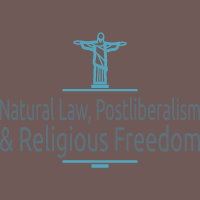
The latest edition of the Montesquieu Institute’s newsletter, De Hofvijver, contains a section on ‘Forty Years of the Dutch Christian Democratic Appeal,’ which also includes a contribution from my hand. This contribution, entitled ‘Realiteitszin gevraagd: de Europese Volkspartij als brug tussen Traditie en moderniteit,’ tries to build a bridge between my earlier work as a political scientist and my current law and legal philosophy research. Below follows an English translation:
According to the Canadian political scientist David Koyzis, political ideologies such as liberalism and socialism share one characteristic. All of them focus on a particular aspect of reality, such as individual autonomy. In almost all cases, these ideologies, therefore, have a valuable aspect.
According to the author, the only exception is Christian thinking about man, society, and state. This thinking testifies to a sense of reality since it takes the whole of reality as its starting point. Because of this, it does not concern an ideology. After all, Christian political thought does not try to change a large part of reality, so that it serves, for example, the social class.
Koyzis stands in the Calvinist tradition. However, this in itself is no reason to take his characterization of Christian political thought with a pinch of salt. As the philosopher of law Andreas Kinneging shows in his book De Onzichtbare Maat (The Invisible Measure, 2020), the so-called European Tradition does indeed testify to a sense of reality. She derives her insight into good and evil from both visible and invisible reality by using reason.
The Tradition begins with the classical philosophers, Plato at the forefront, and includes Christianity. Leading church fathers and theologians such as Augustine and Thomas Aquinas were, after all, influenced by classical philosophy, however much they added their specific dimension to it.
The above makes it possible to clarify the criticisms that the Dutch Christian Democratic Appeal (CDA) and its predecessors have made of the European People’s Party (EPP) in the past. After its foundation in 1976, more conservative parties gradually joined the party. As a result, in the eyes of the Dutch section, its Christian-democratic identity was diluted.
Indeed, according to Koyzis, conservatism also bears the character of an ideology. This direction of thought threatens to absolutize what has historically grown. Such a tendency can be at the expense of a complete view of reality. This ideology is also static, in so far as it sometimes also opposes a ‘good’ development of culture.
Moreover, within the EPP, not only conservatism plays a role. According to its program of principles, it also defends liberal democracy. At first sight, this may not seem spectacular. Nevertheless, Koyzis considers not only liberalism but also democracy as a possible ideology. Democracy becomes an ideology when the will of the people is considered infallible.
Kinneging also shows how both democracy and the rule of law have only really taken root in modernity. Seen in this light, the EPP fulfills an interesting bridging function between Tradition and modernity. That this can lead to tension is demonstrated, for example, by the suspension of Victor Orbán’s ‘illiberal’ Fidesz party.
Nevertheless, the bridging function between tradition and modernity also offers the EVP perspective. Kinneging opens his book by observing that a cultural change of world-historical significance took place in the West in the 1960s. Surprisingly, not too many people appear to mind. In short, Tradition was abandoned entirely.
Of course, modernity began earlier. However, its consequences were tempered for some time thanks to the impact of both classical-philosophical insights and Christianity. Politically speaking, the farewell to Tradition manifests itself mainly in a waning sense of reality. It is no coincidence that political ideologies only appeared in modernity.
The question is whether Europe will remain a wonderful place to live for much longer when politics is increasingly weaned from a sense of reality. One policy area where the think tank of the EPP is already taking corrective action is European integration. Last summer, a report stated that European and other international organizations should not become “instruments of ideologically-driven social change.”


